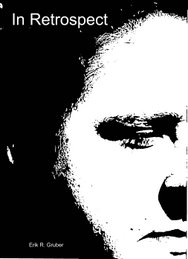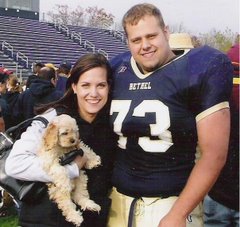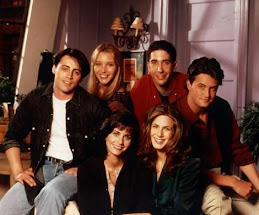Yesterday we took a look at the reason that Affirmative Action is necessary. Now let’s talk about why it doesn’t work.
The Civil Rights Movement ended legalized racism in the ‘60s, but racism as a paradigm persisted. Criminalizing prejudice did little to change anyone’s world view. Minority groups to this day are oppressed by cultural pressures. Following the Civil Rights Movement minorities were allowed to sit in the front of the bus or at the lunch counter, but this didn’t drastically change anyone’s life. These people had been outcast and marginalized since birth. Institutionalized poverty forced them to live in slums and work for nothing, and meant many of them lacked the education or skills necessary to lift themselves out of negative circumstances.
In 1962 Lyndon B. Johnson and James Farmer (founder of the Congress of Racial Equality) proposed a plan called Compensatory Preferential Treatment (renamed Affirmative Action in 1965) to promote equality. In a speech at Howard University, Johnson said “You do not take a person who, for many years, has been hobbled by chains and liberate him, bring him up to the starting line in a race and then say, 'you are free to compete with all the others', and still justly believe that you have been completely fair.” So they came up with a program to offer a historically oppressed group of people a fighting chance by encouraging employers to hire minorities and providing them with the opportunities and means to seek an education. Johnson and Farmer hoped to provide minorities with the tools to succeed.
But they failed to realize that success is largely environmental. The people to whom they were now extending a helping hand had already become ensnared by a culture of prejudice and suspicion. A child raised in a household that places little value on education will never learn to value education. The opportunities were not being utilized, and the cycle continued.
Through the ’70s and ‘80s a drug and crime epidemic swept through urban areas. Gangs formed and established power, initially as a means of community protection. Eventually they switched to the business of drug distribution as the only available method of supporting themselves.
The urban communities being affected were largely populated by minorities, who for the aforementioned reasons were unable to escape the slums. Young men, lacking the means to support children, the education to rise out of poverty, and living dangerous lifestyles, started abandoning their families. As a result, children were being born to unwed mothers in a culture where gang life and drug dealing were necessary to survival. The arrival of gangster rap further served to glorify this life of crime, engraining in the minds of youngsters the idea of respect and success earned through violence.
Imagine such a childhood. You’ve never met your father. Your older brothers are gang-bangers, drug dealers. If you succeed in school your friends accuse you of “selling out” or acting too “white” (I worked with kids for years. My parents and sister are teachers. This is the reality). What is the motivation to seek an education?
This is where Affirmative Action fails. The government thinks the solution is to throw more money at the problem (what else is new?) when what is really needed is a cultural paradigm shift. Programs need to be put into place to educate parents about the values of education. Influential African Americans (think Jay-Z, Kanye West) need to speak out about the negativity of violence and gang life, and teach youngsters to aspire to greater things. Imagine the positive impact if Jay-Z were to go back to school and get his college degree.
Even more so, imagine the positive impact of a President Barack Obama.
Racism isn’t tangible. It exists in the minds of people. As long as this is true, equality will never be found. Part of the problem with Affirmative Action is that, while making an effort to lift historically oppressed people out of poverty, the system as it exists inevitably draws a line between black and white, creating resentment on both sides and actually promoting inequality.
If we are truly to be one people, one culture, one country (though I still advocate maintaining our diversity), we need to see ourselves as such. On issues of social welfare, there can’t be a line between black and white.
Late Night, your thoughts are appreciated, and largely I agree with you (particularly about the Christian responsibility to care for the poor). You stated, the “poor” and the “minority” in this country seem to go hand in hand. But this is an unfortunate truth, not an inherent fact. The poor and the minority go hand in hand because of circumstances. By making Affirmative Action an issue of “minority” and “non-minority,” the idea of “us” and “them” is further entrenched in people’s minds. It gives the racists ground to stand on when they can say “these people need our hand-outs,” and it creates resentment amongst minorities when they can say “these people assume we need their hand-outs.”
What do I propose? I believe that Affirmative Action should be based on poverty lines, not racial lines. It’s poverty that people can’t escape, not their ethnicity (and the assumption that race is the oppressor, not poverty, is a muted expression of racism). The question on applications and tests should not be “what is your ethnicity?” but rather “what is your parents’ income level?” “what is your parents’ education level?” “where did you grow up?”
I look forward to hearing everyone’s thoughts.
Thanks for reading.
Note: Prominent figures like Oprah Winfrey and Bill Cosby have already done a tremendous amount to shift the thinking of the culture (Cosby, along with Alvin F. Poussaint, recently came out with a book called Come on People: On the Path from Victims to Victors. It’s on my reading list, but so are a lot of books. I have a feeling it would help a great deal in gaining an understanding of the issues).
Subscribe to:
Post Comments (Atom)


















7 comments:
I don't have a lot to say again, mostly because I'm on the same page with a lot of what you're saying. I agree that the people of this nation and especially the ones of us that claim to be Christ followers need to put emphasis on helping the poor.
To me the minority and the poor are separate issues even though they are connected. I don't like reverse discrimination because as a group I believe that blacks as a culture have wasted a lot of the time, money, and effort that has been given. Why should we continue to favor them specifically because of the color of their skin?
Like the examples Gruber gave, as a culture they are embedding themselves into the "stereotypical" role more than they are trying to rise above it. It is honestly hard for me to have sympathy for them when for the last decade (or however long) there culture (in my opinion) has gotten so out of hand (morally)(is that too many parenthasis in one sentance?). It makes me sick to see the way Snoop Dogg, 50 Cent, and the likes are glorified.
Instead of racism receding in this country, it might be growing because of all of it. I'm sorry, but in the local news the majority of the murders are commited by black males and for absolutely ridiculous reasons (not that there are any good reasons). What am I supposed to think? Of course when I walk down the streets of Minneapolis I'm going to be more scared of a black kid then a white kid. Of course I'm going to be more guarded towards black guys. Call that racism if you want but I call it being smart. It is like the guy that goes in the water with sharks because he claims they don't want to hurt humans and then he gets bitten for being naive (thanks Joe). I know that all black people aren't out to kill me, but your not going to find me walking down in minneapolis by myself at night.
So in conclusion, I'm all for helping the poor of any and all races, genders, sexual preferences, whatever. I have no biases. I have trouble, like Gruber said, with how affirmative action actually plays out in this country.
I have to say that I agree, once again, with P Corcs. I shouldn't call myself racist for being nervous around a group of African-Americans at midnight. Although, some would argue that is racism, I would not.
Grubes, I really like the point you made about application and test questions.
Yes, most minorities do have a harder life than some people from the majority group. But the key word is some. Everyone struggles for different reasons, but the quick fix is not simply handing out free money or giving away jobs that others could do better. Maybe, like Grubes said, affirmative action should be free training seminars on the importance of a stable family, or education, or responsibility, and the list goes on. Something like this would enable people who know no structure to learn to value it and see its importance. Also it puts responsibility in the hands of the minority. They would be given tools to help rid themselves of their problems... which would be much more gratifying each step along the way.
A few thoughts: Zot, beyond the argument, I would like to say that that was one of the most well articulated postings I've read. Great writing. It's a difficult topic to articulate, but you did it well!
Thank you for clearing up my post from yesterday. You're correct. It's an inherent truth that has more to do with circumstance than skin color. Nevertheless, it is the case (and overwhelmingly the case I might add). I will practice reverse discrimination for the sake of race relations. Until the divide is closed up, I will do my part to love the differences of others, care for the "inherent" poor, and walk down the streets of Minneapolis.
(Not that I am a saint, but I'd like to think this is the ethical way to do things. I just need to get over my own faults to do this correctly)
If we don't walk down the streets of Minneapolis and only scurry off to our vehicles to quickly make it back to the suburbs, how is that love? How is that bleeding for the downtrodden? It's also an inherent truth that poverty and crime go together. So if I ever want to engage with poverty, I might not be safe! But count the cost.
In any ethical dilemma I like to ask myself, "What would Jesus do?" (Yes its the classic evangelical question, but I'd say the most necessary question any Christ-follower could ask)
Pcorcs- I think you are a wise and honest man! I would be scared too. We don't have to be foolish to care about our brother. If we bind all these inherent truths together (poor, minority, crime), we can see how it may be a dangerous situation to go down in to the ghetto.
But back to my question. Would Jesus hang in the "safe" suburbs? Or be down in the "scarry" slums? I think both, but as we see from the Gospels, Jesus had a special care for the poor. And if we are too mimic the life and actions of Christ, we should spend much more time with the poor than the wealthy. It's simply biblical.
Whether Affirmative Action works or not (great argument again Zot), the Christian is called to take their own affirmative action against poverty, injustice, and oppression.
If Snoop Dogg, and 50 Cent grew up and in White Bear Lake, and went to Bethel like we did, I bet they wouldn't be so vulgar. The problem is that people invest (perhaps white america the most? Eminem song anyone?) in supporting these messages.
Pat and Joey- If the shark bites, so be it!
"...to live is Christ and to die is gain." Phil. 1:21
Swajac-
Actually the key word should not be "some", but "most".
Also, please get into politcs! Your's is a great idea! It's beautiful how dialoguing about these issues spurs a great idea like swajac's!
I would say that overall i agree a lot with what Gruber has said these past two days. Which would mean that i am also walking on the same side of the tracks as Pat and Swajac, but cassel i don't necessarily agree with your thought.
I think your arguments are great, maybe a little preachy, but good none the less. I just feel like there is a big difference, as said before, in helping/caring for the poor, the mistreated, the abused, and giving free handouts to somebody just based off of race. I agree with Gruber that it is much more than the color of your skin and more about the total demographics of your upbringing.
I'll give two real life situations that have to do with the topics at hand that piss me off:
1st:
As a freshman at Bethel I was privileged enough to share a hall with a person of the opposite race, who in my opinion was brought into Bethel not because of his GPA in high school or his ACT scores, but rather to create a more diverse freshman class. Now what happened during my freshman year...Well i saw him fail the majority of his classes, steal from other people in the hall, and eventual leave part way through because he said everyone was out to get him. (Likely, oh yeah and he made my blanket smell) Now on one hand i think it was great to bring him in and give him a chance to make something of his life, but on the other hand it also takes away from somebody that studied hard in high school, got good grades and a good ACT score, but unfortunately they came out of mom the wrong color and they have to give up there spot.
I know that it isn't always like this, but it is just one thing that makes me mad about Affirmative Action. I should say, although its late, that i like the idea behind affirmative action, i just think there needs to be drastic changes made before it really accomplishes what needs to be accomplished.
Okay 2nd Story:
I know that Cassel you are really tough and you don't hustle back to your car after a night of partying or just while walking through downtown, but me on the other hand, I’m gonna get my little ass moving. Not just because it’s cold, but also because I want to get home without any trouble and see my cute puppy. Now as already put, people may call it racist, but I call it smart and learning from past experiences.
For instance, after a night of partying a few weeks back. We were walking out of the club and as we walked down the sidewalk a man walked past us with a gun, proceeded another 10 yards past us and shot at somebody on the other side of the street. So after that I definitely hustled to my car and dipped out.
Now I know that doesn’t happen all the time, but just once was enough for me to learn that there is a time and place for everything and while downtown at night may just not be the best place for me to walk slow and whistle show tunes.
PS: Cassel you look really cute on the other side of the tracks and I just want to go and rub on your bunzies!
One side not: i didn't put much thought into it and i definetly didn't proof read so go easy on me!
Joey- Your story reminds of that night we and Zot were walking back to your place from Majors when those dudes busted out the croll bar on us! That was seriously scarry! I think you are definitely on to something and it makes me question how our beliefs affect our decision making in those tough situations.
Now this has nothing to do with the previous situation or blog, but after reading Joey's two stories I reflected on how my ideal ethic gets put into practice. I have no answers or statement on this but am realizing how important it is to have actually thought about our ethic prior to being in an ethical dilemma. Hmmm...Just some food for thought.
Did we act justly in that situation? Did we look like pussies running away? Or did we do what was ethical? Did we run away simply because we knew we would have gotten our bunzies handed to us? Or did we run away because we don't believe violence is the correct ethic? Would we have acted differently if the mighty strong Pcorcs was there? I don't know? But I think its important that we ask these questions.
Maybe Zot should write on when it is ethical to resort to violence?
That would be a good topic....
Post a Comment